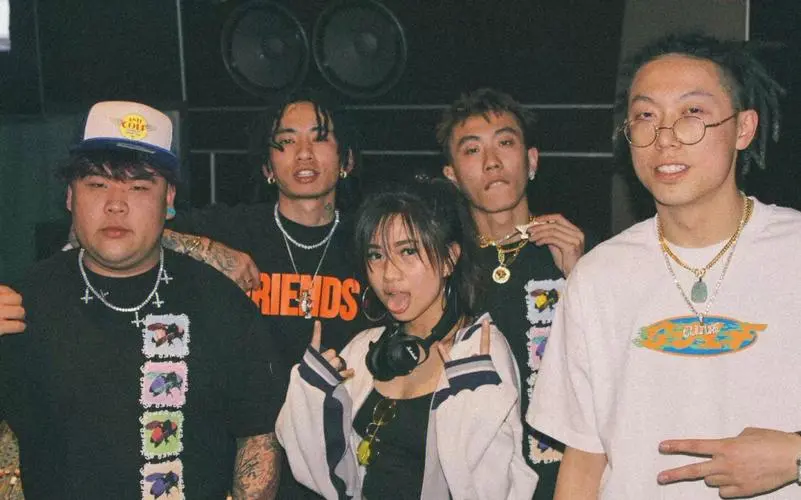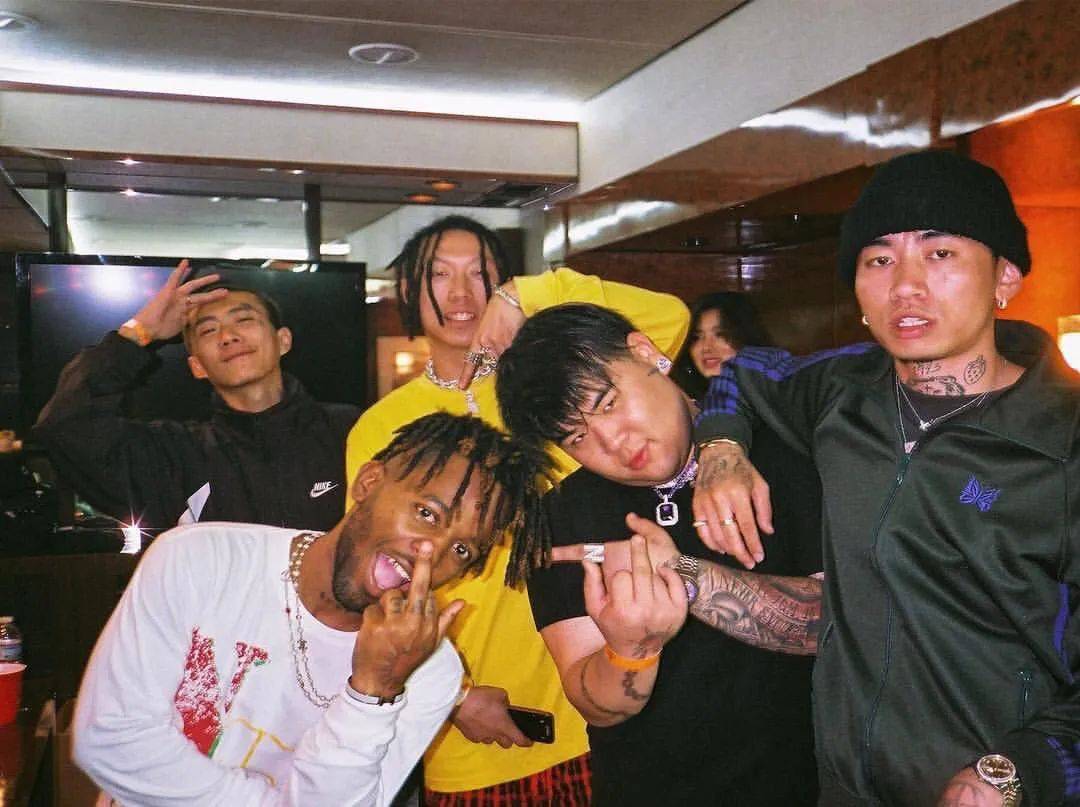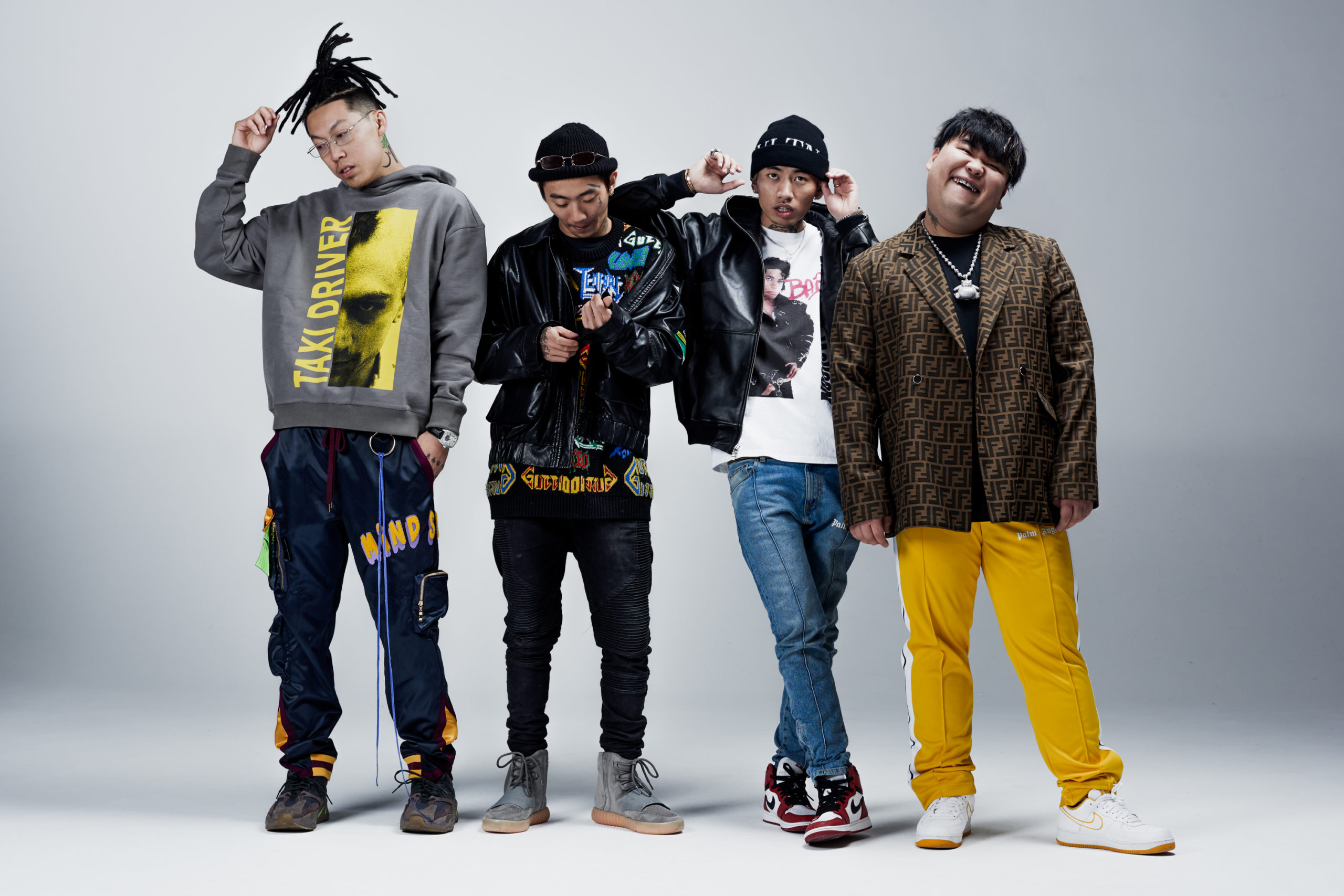In the vast tapestry of the global hip-hop landscape, few acts have managed to capture the essence of cultural fusion and creative innovation quite like the Chinese rap group Higher Brothers. With their infectious energy, boundary-pushing music, and commitment to redefining what it means to be an artist, Higher Brothers have emerged as trailblazers in the world of modern hip-hop. This article delves into five key aspects that define the rise and impact of Higher Brothers as a groundbreaking Chinese rap collective.
Part 1: Origins and Evolution
Higher Brothers, consisting of members MaSiWei, DZknow, Psy.P, and Melo, first joined forces in 2015 in their hometown of Chengdu, China. Their journey began with a shared passion for hip-hop, a genre that was rapidly gaining popularity in China. The group’s early works showcased their ability to blend elements of traditional Chinese culture with modern hip-hop influences, creating a unique sonic landscape that resonated with fans both locally and internationally.
As they honed their skills and developed their signature style, Higher Brothers quickly gained recognition for their fresh approach to hip-hop music. Drawing inspiration from both their Sichuan roots and their love for American rap, the group crafted a sound that seamlessly fused Eastern and Western elements. Their early tracks, such as “Black Cab” and “Made in China,” introduced audiences to their charismatic energy, witty wordplay, and an undeniable connection to their cultural identity.
Part 2: Cultural Bridge
One of Higher Brothers’ most significant contributions is their role in bridging cultures. Their music serves as a vessel that seamlessly carries the essence of Chinese heritage while embracing the global sounds of hip-hop. Lyrics that switch between Mandarin, English, and Sichuan dialects effortlessly capture the group’s multicultural upbringing. Higher Brothers’ ability to fuse Eastern and Western influences serves as a testament to the unifying power of music, transcending linguistic and geographical boundaries.
Their 2017 single “Made in China” exemplifies this fusion. The track not only references Chinese traditions and products but also features English verses that mirror the universal appeal of hip-hop. By weaving these cultural threads together, Higher Brothers create a musical tapestry that resonates with audiences from all walks of life.
Part 3: The Sound of Modern China
Higher Brothers’ music stands as a reflection of modern China – a nation navigating a delicate balance between tradition and innovation. Their tracks tackle relatable themes of urban life, ambition, and personal identity, resonating with a generation that grapples with the complexities of rapid societal change. The group’s fearless approach to tackling topics that are often considered taboo in Chinese culture showcases their commitment to authenticity and societal reflection.
In “WeChat,” the group addresses the challenges of modern communication and the digital age, touching on the dichotomy of staying connected while feeling disconnected. Through their lyrics, Higher Brothers provide a window into the evolving Chinese experience, capturing the struggles and triumphs of youth in a rapidly evolving society.
Part 4: Global Impact
As Higher Brothers continued to release music, they garnered attention beyond their home country. Their unique sound and relatable themes quickly found a global audience. Collaborations with international artists like Ski Mask the Slump God, Joji, and Soulja Boy expanded their reach even further, solidifying their status as global hip-hop influencers. Higher Brothers’ ability to effortlessly collaborate with artists from diverse backgrounds demonstrates their versatility and open-minded approach to artistic collaboration.
The success of their song “Lover Boy 88,” featuring Phum Viphurit, is a testament to their cross-cultural appeal. The track seamlessly blends Thai and Mandarin lyrics, resulting in a harmonious collaboration that transcends language barriers. This achievement highlights Higher Brothers’ capacity to create music that not only resonates with their fans but also connects them with artists from around the world.
Part 5: Cultural Representation and Future Prospects
Higher Brothers’ rise represents more than just musical success; it signifies a shift in cultural representation. The group’s success challenges stereotypes and preconceptions about Chinese artistry, breaking down barriers that have long hindered cross-cultural understanding. As they continue to evolve as artists, Higher Brothers pave the way for future generations to express themselves authentically while honoring their cultural heritage.
The group’s influence extends beyond music, with their fashion and visual aesthetics reflecting their unique blend of cultural backgrounds. Their willingness to embrace their individuality and cultural roots not only empowers their fans but also sets an example for artists seeking to make a meaningful impact.
Higher Brothers’ journey is a testament to the universal power of music to transcend borders and create connections. Their unique blend of cultural influences, infectious energy, and boundary-pushing creativity has earned them a place at the forefront of the global hip-hop scene. With every beat, every verse, and every collaboration, Higher Brothers reaffirm their commitment to redefining the boundaries of modern hip-hop and fostering a more inclusive and culturally diverse artistic landscape. As they continue to break down barriers and inspire others, Higher Brothers stand as a symbol of the unifying force of music in an increasingly interconnected world.


